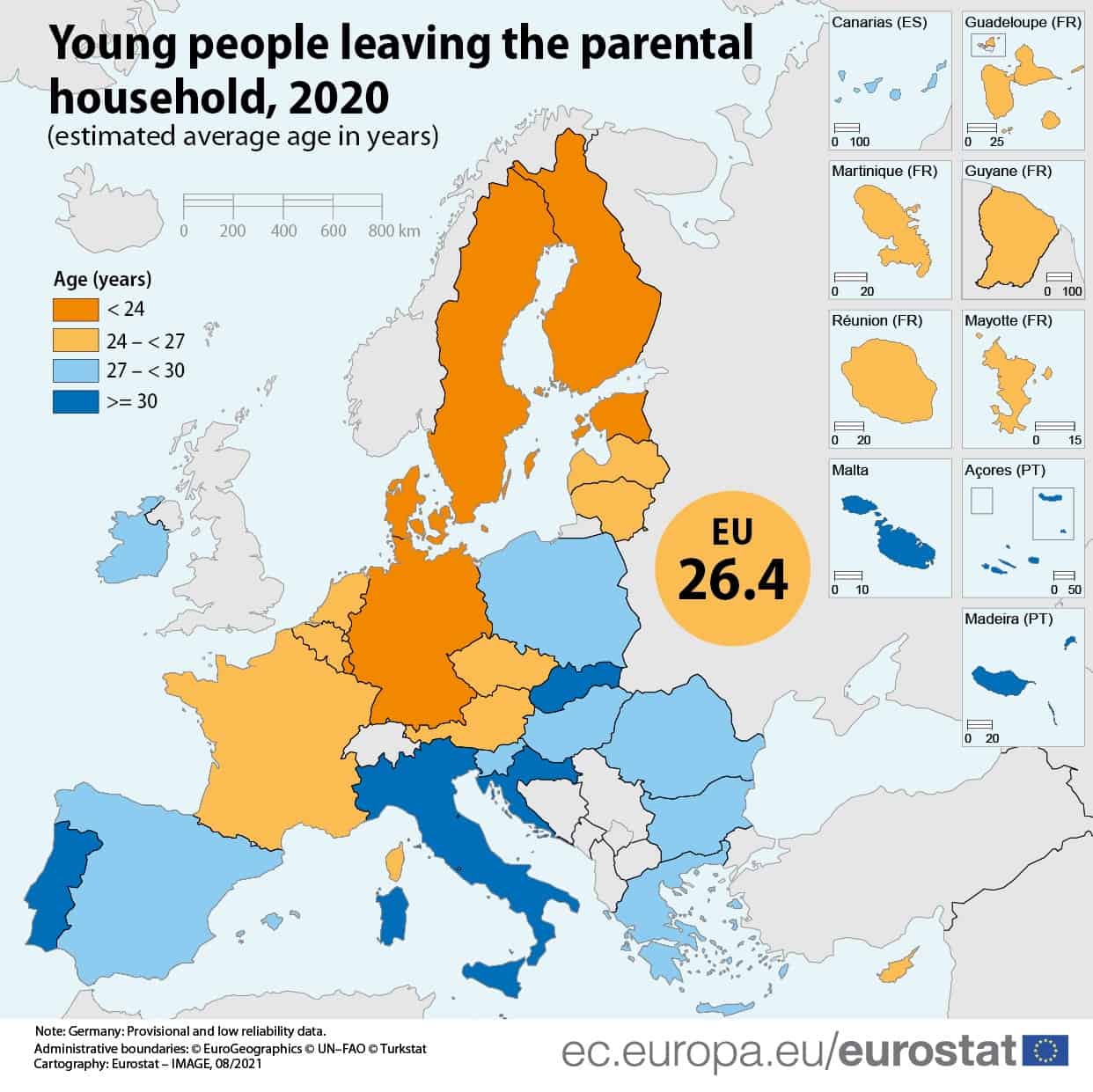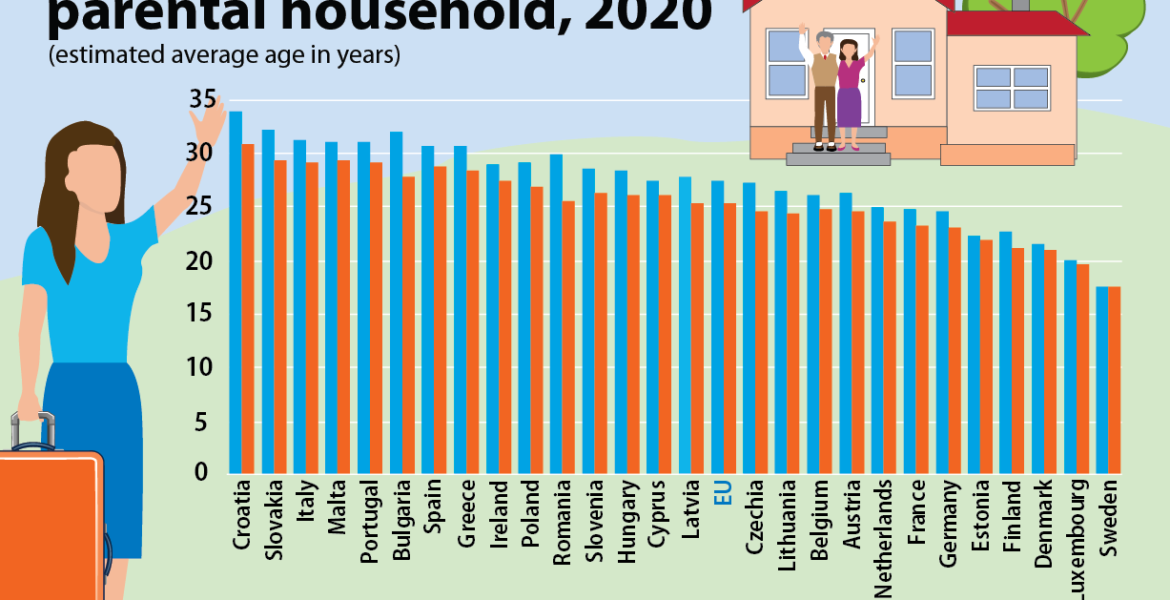The average age of when Greek youth leave the parental home is about 27, with women more likely to leave at an earlier age than men according to the latest statistics from Eurostat on the occasion yesterday of International Youth Day.
Interestingly, the stereotypical divide between north and south Europeans applies to the data in this case too, with the lowest age numbers were recorded in countries like Denmark (21.2 years), Luxembourg (19.8) and Sweden (17.5) , all under 22 years old.
The highest ages of 30 years or higher were recorded in Croatia (32.4), Slovakia (30.9), Malta and Italy (both 30.2) and Portugal (30.0 years).
In 2020, across the EU, young people left their parental household on average at the age of 26.4 years. However, this average varies among the different EU Member States.
In most northern and western countries, young people left the parental home on average in their early to mid-twenties, while in southern and eastern countries the average age was in the late twenties or early thirties.
According to the data, in the EU, on average, males left the parental household at the age of 27.4 years, and females at 25.4 years. This trend was observed in all countries, i.e. young women moved out of the parental household on average earlier than young men. The only slight exception was Sweden where females left on average 0.1 years after males.

The widest gender gaps were found in Romania, where young males left at 30.0, and females at 25.5 years (4.5 years gender gap), followed by Bulgaria (4.2 gender gap) with males moving out at 32.0, and females at 27.8 years. In Croatia, both young men and women moved out the latest in the EU (at the age of 34.0 and 30.9 years, respectively), representing the third widest gender gap of 3.1 years.
Sweden, Luxembourg and Estonia recorded the smallest gender gaps with 0.1, 0.4 and 0.5 years difference respectively between young males and females leaving the parental home.
The gender gap was more pronounced in countries where young people left the parental home later and less pronounced in countries where they left earlier.
READ: Greek Teenagers ‘drink’ Less Sugar Than EU Counterparts


